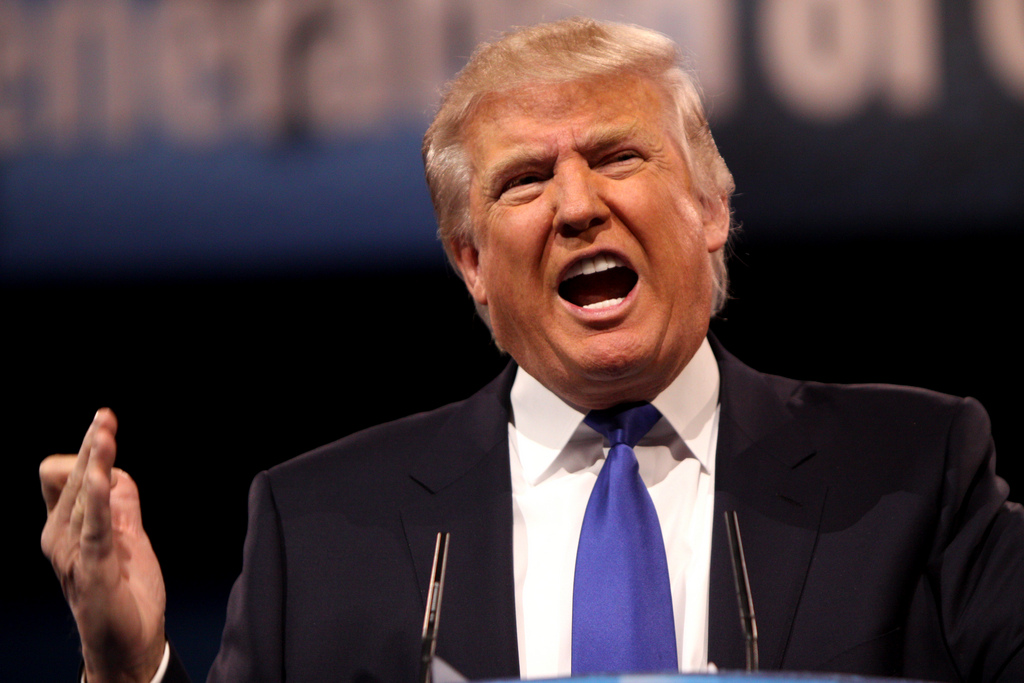Many analysts have described Trump’s rhetoric from a moral perspective, but not a rhetorical one. If we consider the three basic rhetorical appeals, as laid out by Aristotle- logos, pathos and ethos- it becomes clear that Trump almost exclusively uses pathos, or emotional appeals, to communicate his points. This fact is revealing of him as a speaker and leader.
While widely misunderstood, rhetoric is thought of as the available means of persuasion. That is, what we say, and do, to produce a desired outcome. Pathos is thought of as emotional appeals, logos appeals to logic, and ethos appeals to authority. Pathos is often considered the most elementary of appeals, requiring the least amount of creativity and thought. This is the appeal Trump uses most when communicating. To anyone who has listened to the president speak this comes as no surprise.
While American presidents using emotional appeals is nothing new- FDR’s “The only thing we have to fear is fear itself,” and Ronald Reagan’s “Mr. Gorbachev, tear down this wall!” are two prominent examples- perhaps none rely on them so heavily, as Trump.
If we examine Trump’s public speaking resume- from his appearances on talk shows, professional wrestling programs, and of course, reality TV- his rhetorical style makes sense. Professional wrestling and reality TV in particular, are among the most cheap and vapid genres in American entertainment, where communication is often reduced to shouting matches and one upmanship. Little or no value is placed on tact, logic, or even truth. Instead, the winner of an argument in these genres simply has the last word, loudest voice, or most supporters.
Although simple in complexity and lacking creativity, Trump’s emotional appeals have resonated with voters across the US. This is especially true for non-college educated white voters, who have felt left out of America’s new economy of tech companies and highly skilled workers. These voters endorsed Trump based on his emotionally charged slogans such as, “Make America Great Again” and “Build the Wall.”
Now six months into Trump’s tenure, these same voters are second-guessing the president, as he is trying to dismantle The Affordable Care Act (also known as Obama Care), which provides health insurance for twenty-three million Americans, as well as defund Planned Parenthood, which offers free STD testing, contraceptive and sex education to America’s most vulnerable women.
Traditionally, US presidents have been among the best communicators in American society. Barack Obama was a master rhetorician and even an instinctual speaker such as George W. Bush, was careful with his words. Trump breaks the mold, as he is not a careful speaker, nor a deliberate one. His recent statement that the US would bring “fire and fury” upon North Korea “like the world has never known,” was adlibbed.
But Trump’s emotional style of communication is not surprising, considering he comes from a different world than previous US presidents. He wasn’t a lawyer and didn’t study at an Ivy League university. Instead, Trump’s rhetorical style mirrors how he spoke in the entertainment and business worlds, where speakers are expected to get strong reactions from their audience, and communication is pathos-driven.
And yet, politics isn’t entertainment or business- at least it’s not supposed to be. Politics is a place for educated people with a sense of diplomacy, or at least, people who care enough to respect the standards of communication already in place.
Going forward, it’s important that people recognize Trump’s rhetorical strategy is designed to stir up strong reactions, and appeal to peoples’ emotions- not make logical sense. If voters wish to bring positive change to American politics, they have to start supporting leaders who engaging appeals to logic and authority to communicate their points. They must also stop letting emotional appeals, steer their vote. Doing so will ensure candidates who are qualified and informed on important issues take office, not just emotionally charged band standers such as Trump.














Leave a Comment
Your email address will not be published. Required fields are marked with *